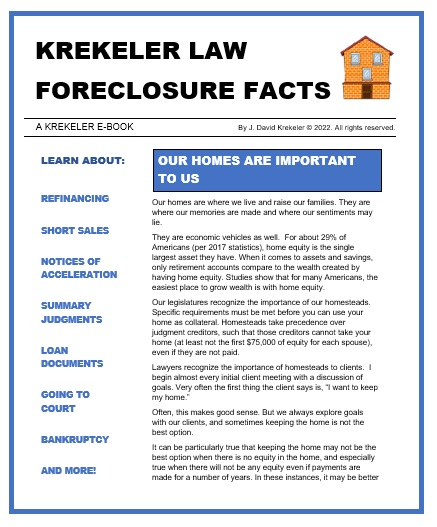The Unexpected Bankruptcy and What to Do About It
The morning mail arrives, and with it is a notice of a bankruptcy filing by a customer you have not heard from in years. The customer owes you money, and the statute of limitations has long since run so you can no longer file suit to collect.
The bankruptcy filing is under Chapter 13, and the notice says that to share in any distributions, you must file a proof of claim by a certain date. What should you do?
Last year, the 7th Circuit issued its decision on this issue. In Owens v. LVNV Funding LLC, the court held that filing a proof of claim based on stale debt does not violate the federal Fair Debt Collection Practices Act (“FDCPA”).
The court reviewed the Bankruptcy Code and its processes for filing and allowing claims, and concluded that the bankruptcy court will disallow any time-barred claims upon the debtor’s objection. Because debtors usually have lawyers, and every case has a Trustee, filing a stale claim will generally not be deceptive, misleading, unfair, or abusive. As such, there would be no FDCPA liability.
The court pointed out, however, that the result might be different if the debtor were not represented by counsel. And the result would certainly be different if the information in the proof of claim is false or misleading.
In conclusion, then, the Owens decision would lead us to believe that a proof of claim can be filed to try and collect upon a claim otherwise barred by the statute of limitations. But the Owens case was based on claims under Illinois and Indiana law. What about Wisconsin?
Our Statute § 893.05 deals with the statute of limitations, and codifies prior case law. “It is the rule of law in this state that the running of the statute extinguishes the right… and that the obligation is thereby extinguished as completely as if it had been paid or otherwise satisfied.” First Nat. Bank of Madison v. Kolbeck, 247 Wis. 462, 464 (Wis. 1945).
This aspect of Wisconsin law has already been construed in connection with the FDCPA. “When the right is extinguished a creditor may no longer claim the money is owed.” Klewer v. Cavalry Inv., LLC, No. 01-C-521 (W.D. Wis. Jan. 30, 2002).
We therefore advise our clients that we as counsel cannot file a proof of claim upon a time-barred debt in Wisconsin. Doing so constitutes a prima facie case of false representation. See Anderson v. Riverwalk Holdings Ltd., Case No. 15-CV-621-pp (E.D. Wis., 2015).
The FDCPA applies only to third party collectors, such as lawyers and collection agencies. It does not apply to creditors collecting their own debts. So can you, as the creditor, file a proof of claim in this case?
You probably should not, if the underlying debt arises from a consumer transaction, including a transaction primarily for an agricultural purpose. Wisconsin’s Consumer Act is patterned very much upon the FDCPA and has many of the same prohibitions on abusive of debt collection processes. The WCA applies to merchants as well as debt collectors.
The penalties under both the FDCPA and the WCA are severe. Consumers can collect actual damages, statutory damages, punitive damages, and all attorney fees.
As with almost everything in the law, though, these rules are complex and often have exceptions. Before taking a chance on such liabilities, be sure to run your particular situation past an attorney well-versed in this area of the law.

